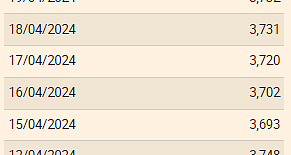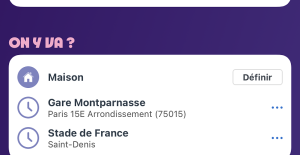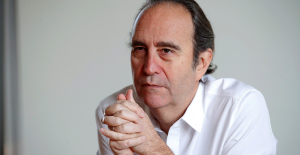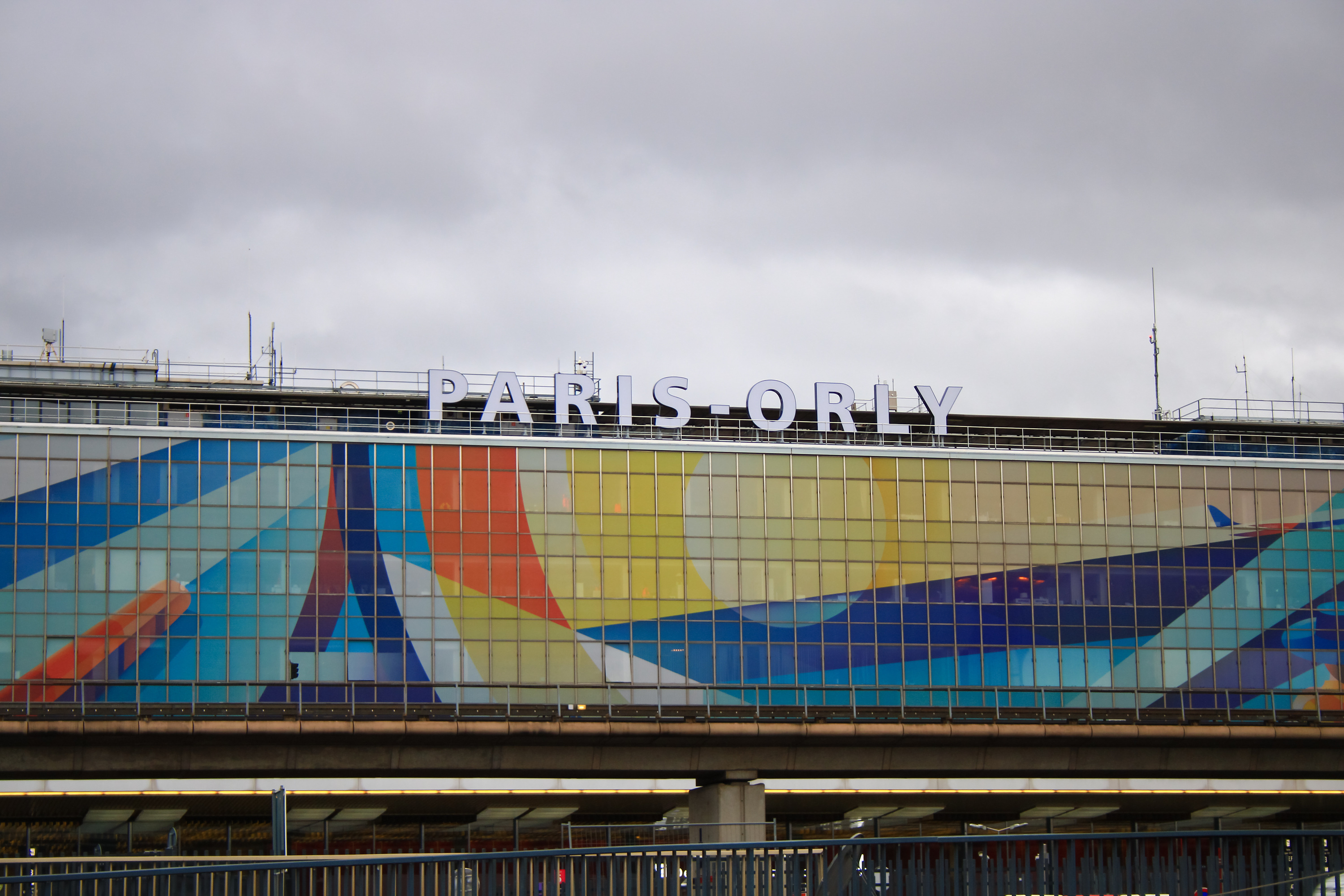Dorothee Feller's benchmark is 10,000. The CDU school minister laid it herself when she announced that she would hire 10,000 additional teachers at NRW schools within five years. If it breaks this bar, it has failed – that is clear to the SPD and FDP opposition. After all, both the government and the opposition unanimously describe the shortage of teachers as the greatest challenge in school policy. And they unanimously declare the 10,000 teacher goal to be the bare minimum to meet this need.
In the meantime, the ministry has outlined in internal talks with teachers' representatives how it plans to achieve this goal. WELT AM SONNTAG presents the plans. with their chances. And risks. Because in order to reach her goal, Feller needs courage.
The CDU and the Greens want to transform so-called single-subject teachers into dual-subject teachers. There are currently 5,276 teachers who are qualified to teach a school subject in NRW, mostly in art, sports or music. Black-Green would like to train them so that they can teach a second subject. The SPD had already come up with this idea in 2021. At that time, the CDU rejected this because they expected only minor effects. Feller now dares to change course. And wants to encourage single-subject teachers with incentives to study a second subject quickly. But will many single-subject teachers continue their education in this way? Sabine Mistler, state chairman of the philologists' association responsible for high schools and comprehensive schools, doubts this. “One-subject teachers are overwhelmingly shortage subject teachers, which means they are needed in the subject for which they were hired. There is then hardly any need for a second subject, ”explains Mistler to WELT AM SONNTAG. Therefore, “at most a minority will be able to undergo further training”.
This newspaper learned that school minister Feller has not yet been able to push through one of her plans in the cabinet: she would like to advertise teaching positions all year round and hire teachers accordingly all year round - not just, as before, for a few application dates a year. The opposition applauds the minister for this. Because then, according to SPD faction deputy Jochen Ott, "more potentially interested people could be won and more permanent positions could be filled". And according to FDP school politician Andreas Pinkwart, this would "undoubtedly stimulate the teacher market". However, if more, possibly all of the positions planned in the budget were actually filled, they would also have to be paid immediately – which would make life more difficult for the finance minister. So far, thousands of permanent positions have been lost every year because they could not be filled by the appointment dates. The Minister of Finance is always pleased because he can then save this money and improve his savings balance. It is therefore not surprising that Feller is still wrestling with Finance Minister Marcus Optendrenk (CDU) on this issue.
Feller's idea of employing student teachers for a longer period of time during their training also seems promising. They are not allowed to teach regular classes. Nevertheless, they could replace a number of fully trained teachers by supervising support groups, working groups, excursions and project weeks and filling in when lessons are lost. The prospective teachers already proved this during the Corona peak phases, when they provided relief in many schools. The potential that the state could draw from is considerable: there are a good 265,000 student teachers in NRW. So far, however, they have only spent one practical semester at school during their entire course.
Black-Green already announced in the coalition agreement that additional teachers should be recruited from the "easier recognition of the training of third-country nationals". Anyone who has been trained as a teacher outside the EU should be able to teach more easily in local classrooms. According to a study by the Education and Science Union (GEW) from 2021, around 2,500 immigrant teachers apply each year to have their degrees obtained abroad recognized in Germany. But only 20 percent succeed. If all 2500 were recognized, that would be a good 400 additional teachers for NRW per year according to the usual calculation key.
According to the ministry, a maximum of 40 teachers from third countries are recognized each year in NRW. Their potential could even be far greater. The calculations so far have not even included what is currently the largest immigrant group: the 214,000 Ukrainians in North Rhine-Westphalia. It is questionable, however, how much loss of quality would go hand in hand with easier recognition. NRW is already considered to be accommodating when it comes to recognition - above all through the "LehrkraftPLUS" funding program. This makes teachers from third countries fit for NRW schools in a one-year full-time course. In particular, it brings your German language skills to language level C1.
In the EU, there is a six-level scale for language proficiency, with the best level being C2 and the second best being C1. Anyone who speaks German at C1 level has a command of around 8,000 words, while adult Germans actively use an average of 12,000 to 16,000 words, according to Duden-Verlag. The language level of teachers from third countries is therefore not optimal. As a precaution, the AfD has already warned of such quality losses.
According to Sabine Mistler from the Association of Philologists, more temporary teachers at C1 level would be "an advantage, because teachers from third countries can take on important functions, especially in schools with many immigrants, ideally in double classes with one established teacher and one immigrant". However, "successful education is only possible if teachers have a sound knowledge of German". The number of teachers at C1 level must therefore “remain manageable”. The school minister will therefore always have to bear in mind that the more third-country nationals she brings into the schools, the more likely she will have to reckon with protests.
The ministry also suspects that lateral entrants have a reservoir of teachers that should be used more effectively. But how? Apart from the special needs school, all types of schools from the first class to the Abitur course are already open to lateral entrants. It is only in elementary school that lateral entry into math and German is not possible because the didactic requirements are particularly high here. The country wants to stick to that. Apparently, the elementary schools (where the shortage of teachers is most pronounced) can hardly be opened up to lateral entrants.
This is confirmed by the statistics: since 2018, when lateral entry was last made easier, the number of lateral entrants at NRW schools, especially primary schools, has been falling. In 2021, a total of 553 lateral entrants were hired (114 of them at primary schools), in 2018 there were still 1006 (274 at primary schools). According to all parties, the limit for further openings was reached in 2018 - provided that the quality of teaching is not to decrease. But perhaps a financial incentive will lure more people interested in teaching in primary schools: by 2026 the state will raise the minimum salary for primary school teachers to A13 (over 4,300 euros gross per month) – and spend 900 million euros on it.
The vocational schools are different. In addition to primary schools, they suffer the most from a shortage of skilled workers. And there it is actually possible to open up more to lateral entrants. You know that in the ministry. And the Chambers of Industry and Commerce (IHK) also point this out.
So far, a trained master craftsman has been allowed to examine prospective vocational school teachers for the IHK so that they can teach theory in vocational schools. However, the examining master himself is not allowed to teach theory at vocational schools. Here, as emphasized by the SPD school expert Ott, in addition to the IHKs, there is “a relevant staff reservoir for the vocational schools”. After all, more than 3100 master craftsmen are approved in NRW every year. The old state government didn't want to know much about it because the masters lacked the formal qualifications. Ott therefore demands that the minister should "break away from the formalistic concept of quality that the CDU and FDP have maintained for too long."
FDP school politician Pinkwart gives something else to consider: "According to the latest calculations by the Conference of Ministers of Education, 10,000 additional teachers by 2027 will no longer be enough to eliminate the shortage in NRW. If we want to maintain the current student-teacher ratio, we need 16,400 additional teachers.” Pinkwart also pointed this out to the ministry. It didn't contradict.

 The Euribor today remains at 3.734%
The Euribor today remains at 3.734% Germany: the trial of an AfD leader, accused of chanting a Nazi slogan, resumes this Tuesday
Germany: the trial of an AfD leader, accused of chanting a Nazi slogan, resumes this Tuesday New York: at Columbia University, the anti-Semitic drift of pro-Palestinian demonstrations
New York: at Columbia University, the anti-Semitic drift of pro-Palestinian demonstrations What is Akila, the mission in which the Charles de Gaulle is participating under NATO command?
What is Akila, the mission in which the Charles de Gaulle is participating under NATO command? What High Blood Pressure Does to Your Body (And Why It Should Be Treated)
What High Blood Pressure Does to Your Body (And Why It Should Be Treated) Vaccination in France has progressed in 2023, rejoices Public Health France
Vaccination in France has progressed in 2023, rejoices Public Health France Food additives suspected of promoting cardiovascular diseases
Food additives suspected of promoting cardiovascular diseases “Even morphine doesn’t work”: Léane, 17, victim of the adverse effects of an antibiotic
“Even morphine doesn’t work”: Léane, 17, victim of the adverse effects of an antibiotic MEPs validate reform of EU budgetary rules
MEPs validate reform of EU budgetary rules “Public Transport Paris 2024”, the application for Olympic Games spectators, is available
“Public Transport Paris 2024”, the application for Olympic Games spectators, is available Spotify goes green in the first quarter and sees its number of paying subscribers increase
Spotify goes green in the first quarter and sees its number of paying subscribers increase Xavier Niel finalizes the sale of his shares in the Le Monde group to an independent fund
Xavier Niel finalizes the sale of his shares in the Le Monde group to an independent fund Owner of Blondie and Shakira catalogs in favor of $1.5 billion offer
Owner of Blondie and Shakira catalogs in favor of $1.5 billion offer Cher et Ozzy Osbourne rejoignent le Rock and Roll Hall of Fame
Cher et Ozzy Osbourne rejoignent le Rock and Roll Hall of Fame Three months before the Olympic Games, festivals and concert halls fear paying the price
Three months before the Olympic Games, festivals and concert halls fear paying the price With Brigitte Macron, Aya Nakamura sows new clues about her participation in the Olympics
With Brigitte Macron, Aya Nakamura sows new clues about her participation in the Olympics Skoda Kodiaq 2024: a 'beast' plug-in hybrid SUV
Skoda Kodiaq 2024: a 'beast' plug-in hybrid SUV Tesla launches a new Model Y with 600 km of autonomy at a "more accessible price"
Tesla launches a new Model Y with 600 km of autonomy at a "more accessible price" The 10 best-selling cars in March 2024 in Spain: sales fall due to Easter
The 10 best-selling cars in March 2024 in Spain: sales fall due to Easter A private jet company buys more than 100 flying cars
A private jet company buys more than 100 flying cars This is how housing prices have changed in Spain in the last decade
This is how housing prices have changed in Spain in the last decade The home mortgage firm drops 10% in January and interest soars to 3.46%
The home mortgage firm drops 10% in January and interest soars to 3.46% The jewel of the Rocío de Nagüeles urbanization: a dream villa in Marbella
The jewel of the Rocío de Nagüeles urbanization: a dream villa in Marbella Rental prices grow by 7.3% in February: where does it go up and where does it go down?
Rental prices grow by 7.3% in February: where does it go up and where does it go down? Europeans: “All those who claim that we don’t need Europe are liars”, criticizes Bayrou
Europeans: “All those who claim that we don’t need Europe are liars”, criticizes Bayrou With the promise of a “real burst of authority”, Gabriel Attal provokes the ire of the opposition
With the promise of a “real burst of authority”, Gabriel Attal provokes the ire of the opposition Europeans: the schedule of debates to follow between now and June 9
Europeans: the schedule of debates to follow between now and June 9 Europeans: “In France, there is a left and there is a right,” assures Bellamy
Europeans: “In France, there is a left and there is a right,” assures Bellamy These French cities that will boycott the World Cup in Qatar
These French cities that will boycott the World Cup in Qatar Serie A: Bologna surprises AS Rome in the race for the C1
Serie A: Bologna surprises AS Rome in the race for the C1 Serie A: Marcus Thuram king of Italy, end of the debate for the position of number 9 with the Blues?
Serie A: Marcus Thuram king of Italy, end of the debate for the position of number 9 with the Blues? Milan AC-Inter Milan: Thuram and Pavard impeccable, Hernandez helpless… The tops and flops of the derby
Milan AC-Inter Milan: Thuram and Pavard impeccable, Hernandez helpless… The tops and flops of the derby Ligue 2: Auxerre leader, Bordeaux in crisis, play-offs... 5 questions about an exciting end of the season
Ligue 2: Auxerre leader, Bordeaux in crisis, play-offs... 5 questions about an exciting end of the season


















